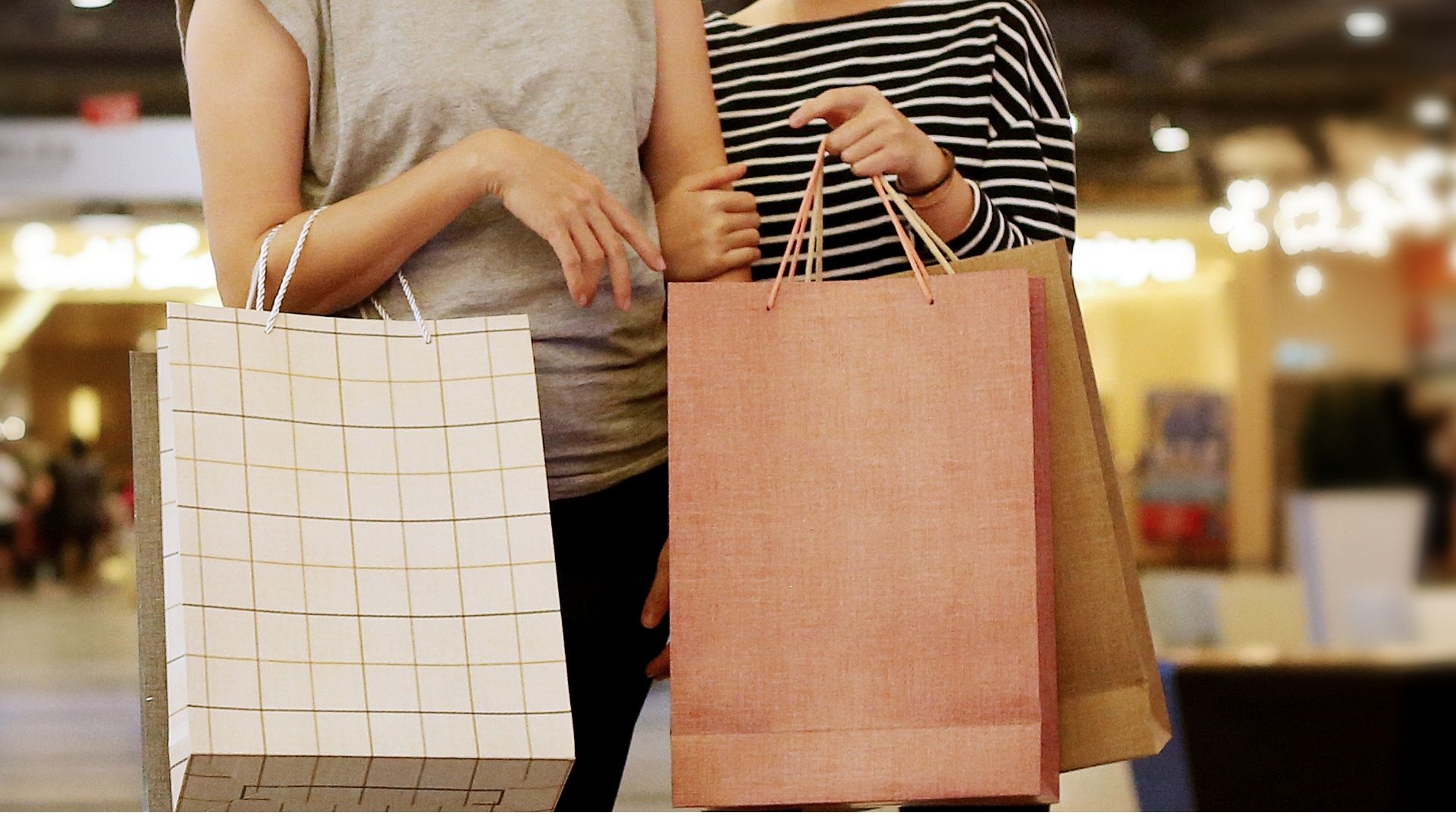Just the other day, I went shopping for Chinese New Year outfits with my mum. It had been years since we went shopping together, for various reasons.
The first is as an undergraduate in environmental studies, I learnt about the true socio-environmental cost of fast fashion. That was when I stopped subscribing to the practice of 新年穿新衣 (“new year wear new clothes” in Mandarin), and opted for pre-loved clothing from thrift stores instead, in the face of mum’s vehement protests.
The second reason might just be a byproduct of growing up. With adulting comes new responsibilities and less time for parents, and things like shopping with mum started paling in comparison to my other priorities.
When the Covid-19 pandemic hit, and especially having contracted the virus myself, I had to depend on online shopping for my everyday necessities. I discovered the wonders of online shopping. It is convenient, efficient, and I could find anything I want — all within the confines of my own home, sometimes at a fraction of the retail price.
I thought online shopping was objectively an upgrade until I went brick-and-mortar shopping with my mum last weekend, and realised how much she — and I — miss it.
As we roamed the streets of Orchard Road and that familiar soreness in my soles hit me like deja vu. My mum then said something I hadn’t heard in ages and it pulled at my heartstrings. She said, “This is why it’s so nice to have a daughter. Daughters accompany you shopping.”
I’d heard her say that line so many times growing up, but this time it hit differently. It was then that I realised that while in pursuit of “nobler” goals, I had inadvertently given up an important one — my mother-daughter time with her.
As it turns out, research has shown that young women shop with their mothers to spend quality time, establish trust, and, funnily enough, gain independence from their mothers.
“Historically, mothers transfer their shopping knowledge and expertise to their daughter in what often becomes a lifelong shopping partnership,” the paper states.
It even says that identity construction for women involves their roles as shoppers. “[…] many cultures portray a woman’s self-worth as a function of her shopping skills and the astuteness of her consumer choices.”
This rings true more than ever, especially in Asia. A quick tag-along occasionally with my mum on her weekly grocery runs in our neighbourhood market is enough to remind me of the irreplaceably archaic “foraging and haggling” expertise that my generation would never be able to fully inherit or understand.
Mum knows exactly which stall sells the best garlic, and it is different from the stall that sells the best red chilis. She has established a rapport with my favourite fish soup stall, and even has them on speed dial to find out if they are shut on certain days. When we were shopping in town last weekend, Mum whipped out all her free loyalty membership cards to get the cheapest and best retail deals possible.
Mum grimaces at every mention of online shopping platforms like RedMart, which makes all the knowledge she had taken pride in accumulating over the years obsolete.
She is not alone in her opinion, it seems. A study by UK mobile tech firm Blis found that almost half of Singaporean respondents consider shopping as a hobby, and that about 4 in 5 Singaporeans preferred to shop in physical stores when it comes to food and groceries and 3 in 5 when it comes to buying household appliances.
More than 3 in 5 respondents prefer showrooming or looking for items in-store before ultimately purchasing them online, and more than half still prefer to buy in-store so they can see the quality of the product before they buy it.
But this might be changing quickly. According to experience management company Raydiant’s State of Consumer Behaviour Report, almost half of respondents said that they have replaced products they typically purchase at physical stores with competitors’ online alternatives.
Brand loyalty is also taking a downturn with 1 in 4 of respondents saying that they switch brands more often today than ever before.
Walking through aisles of the “old but gold” malls along Orchard Road, I saw how many of the longstanding boutiques, which used to hold more individualistic, timeless designs, have been replaced with fast fashion giants like H&M that occupy entire floors.
Quality is now hardly a concern today as these large chains offer the latest fashion trends and the biggest sales. I realised that the optimised efficiency of online shopping sped up fast fashion, the very thing I had sworn against, and edged out the ones I had subliminally grown so fond of.
I wondered as I walked through the older malls when it was that the owners of these smaller boutiques realised that customers like my mother weren’t coming back as frequently.
“Physical stores are still part of the shopper’s journey, but they no longer comprise the entire journey,” Mr Richard Andrew, managing director for Blis Asia said in a report. “The journey now includes touchpoints on multiple devices, including desktops, tablets, and mobile phones.”
In another study conducted by Verizon Business, almost 4 in 5 respondents agreed that blended interactions are equally or more satisfying than human-only interactions when it comes to customer service.
Again, I thought about how seamless my transition was to online shopping, and how I didn’t realise how much it had quietly turned shopping from a key bonding activity between women across generations, into a solo, transactional experience today.
The streets we used to roam are still the same places, now a tad more impersonal and unfamiliar.
I pray that some of them manage to survive — or at least evolve with the times while retaining their authenticities — so my mum and I get to play out our, now antiquated, shopping rituals for just a few more years.
I’m thirteen now and don’t know how my friends could be so mean
I come home crying and you hold me tight and grab the keys
And we drive and drive until we found a town far enough away
And we talk and window shop till I forgot all their names.
-Taylor Swift, The Best Day.
RELATED: Changing role: From son to head of the house
Join the conversations on TheHomeGround Asia’s Facebook and Instagram, and get the latest updates via Telegram.





























